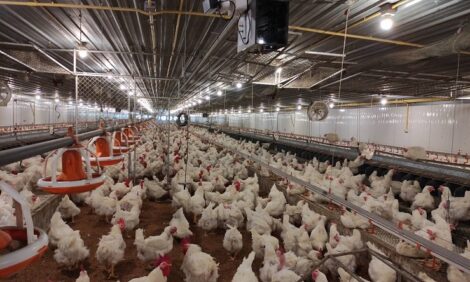



Genetic Discovery Will Improve Feed Values And Environmental Quality
IOWA - Scientists have identified the plant gene that controls Phytic acid, a naturally occuring organic acid that influences the digestibility of feed grains. Deactivating it will reduce the amount of phosphorous and other pollutants, excreted in animal waste, say researchers.The discovery, by plant genetics company Pioneer Hi-Bred, heralds a major advance for both agronomists and livestock nutritionists. The ability to 'silence' the phytic acid gene can help to increase the feed value of cereals and oilseeds. The technology will also enable plant breeders to develop specific selection programs for the production of low-impact, more environmentally-acceptable feed grain crops.
Phytic acid, a compound in grain and oilseeds is not digestible by monogastric animals, such as pigs and poultry. It also reduces the availability of essential minerals in a diet, including phosphorus, which when excreted in the manure can be environmentally damaging. Through genetic manipulation, scientists have been able to silence the phytic acid gene in corn, and as a result improve the feed value of the grain.
"This research is a major advancement in our effort to improve the quality of grain used for animal feed and brings more value to producers," said Jinrui Shi, research scientist at Pioneer. "This is the first time an institution has successfully produced a transgenic low-phytic acid trait without impacting germination or plant growth. In the past, this has precluded successful commercialisation of this trait," he added.
Significant benefits
Low-phytic acid seed is beneficial because it increases the amount of nutritionally available phosphorus and the bio-availability of other essential minerals. This lowers the amount of phosphorus from undigested phytic acid excreted in manure and also eliminates the need to add costly feed supplements to pig and poultry diets.
Using such grains in livestock diets could help reduce the environmental impact of livestock production. Pioneer says that this technology will directly benefit pork and poultry producers
The genetic trait will now become part of Pioneer's portfolio and will be integrated into it's high-yielding, agronomically superior hybrid corn varieties. The company has also demonstrated that the technology can be used in other crops such as soybeans, which will be equally valuable to ration formulators and livestock producers.
Ten year plan
Pioneer plans to roll-out low-phytic acid seeds within a package of traits for improved feed quality, during the next ten years. It is part of DuPont's strategy to improve the productivity of crops and help livestock producers and others meet the increasing demand for feed, fuel, food and raw materials.
DuPont is committed to improving sustainability for both its own business and its customers. It's environmental targets are linked directly to business growth and specifically to the development of safer and environmentally improved new products for key global markets.
Click here for an abstract of paper








